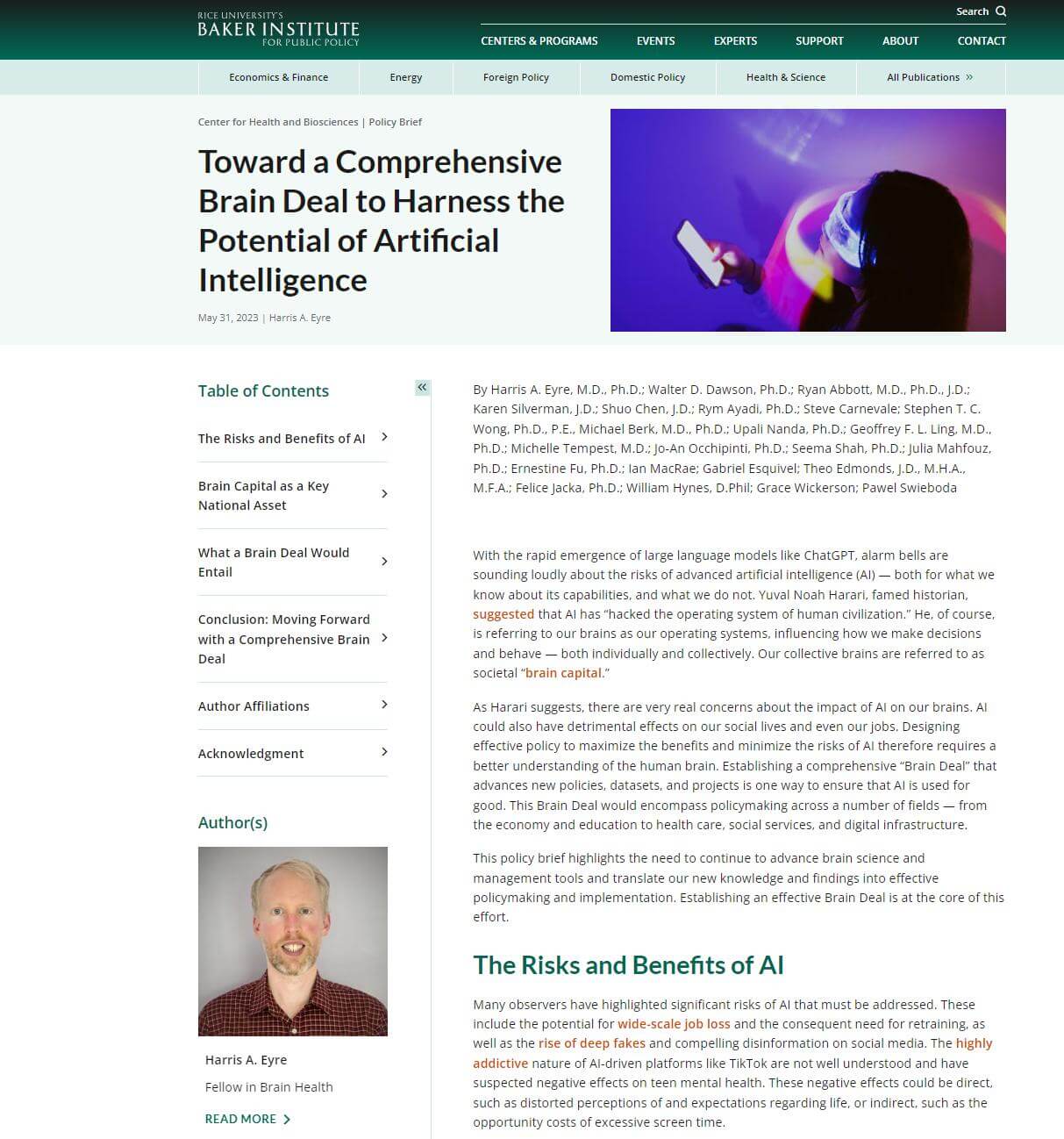With the rapid emergence of large language models like ChatGPT, alarm bells are sounding loudly about the risks of advanced artificial intelligence (AI) — both for what we know about its capabilities, and what we do not. There are very real concerns about the impact of AI on our brains. AI could also have detrimental effects on our social lives and even our jobs.
Designing effective policy to maximize the benefits and minimize the risks of AI therefore requires a better understanding of the human brain. Establishing a comprehensive “Brain Deal” that advances new policies, datasets, and projects is one way to ensure that AI is used for good. This Brain Deal would encompass policymaking across a number of fields — from the economy and education to health care, social services, and digital infrastructure.
This policy brief highlights the need to continue to advance brain science and management tools and translate our new knowledge and findings into effective policymaking and implementation. Establishing an effective Brain Deal is at the core of this effort.
The paper has been published by the Rice University’s Baker Institute for Public Policy: https://www.bakerinstitute.org/research/toward-brain-new-deal-harness-potential-artificial
Authors: Harris A. Eyre, M.D., Ph.D.; Walter D. Dawson, Ph.D.; Ryan Abbott, M.D., Ph.D., J.D.; Karen Silverman, J.D.; Shuo Chen, J.D.; Rym Ayadi, Ph.D.; Steve Carnevale; Stephen T. C. Wong, Ph.D., P.E., Michael Berk, M.D., Ph.D.; Upali Nanda, Ph.D.; Geoffrey F. L. Ling, M.D., Ph.D.; Michelle Tempest, M.D.; Jo-An Occhipinti, Ph.D.; Seema Shah, Ph.D.; Julia Mahfouz, Ph.D.; Ernestine Fu, Ph.D.; Ian MacRae; Gabriel Esquivel; Theo Edmonds, J.D., M.H.A., M.F.A.; Felice Jacka, Ph.D.; William Hynes, D.Phil; Grace Wickerson; Pawel Swieboda


